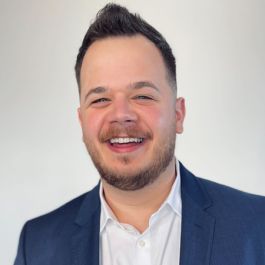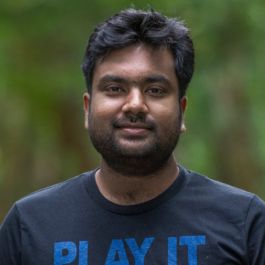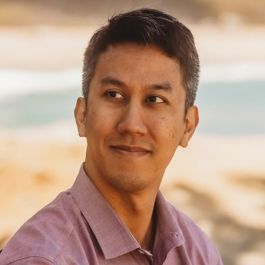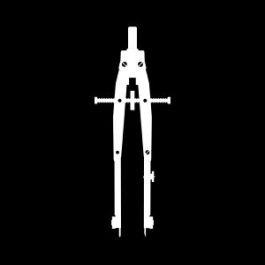At the Chicago World’s Fair of 1893, George Washington Gale Ferris Jr. debuted an engineering marvel. In an effort to produce a spectacle to rival the Eiffel Tower, Ferris proposed, planned, financed and helped execute the construction of a 264-foot wonder — the Ferris wheel.
According to the Chicago Architecture Center, Ferris’ original wheel was an enormous steam-powered structure featuring 36 60-person gondolas rotating around an axle. The wheel took roughly twenty minutes to rotate. Tickets were sold for 50 cents, and the wheel and its view of Lake Michigan attracted more than 1.4 million riders at the fair.
Over the ensuing decade, though, the wheel became less and less economically viable. It was moved — first to North Clark Street further west of the lake and then to St. Louis, Missouri, where it languished for two more years. Finally, in 1906, the wheel was demolished and its remains sold for scrap.
The pace at which modernity moves can feel staggering. And as a profession intimately associated with technology, we tend to look at engineering — be it in a physical or a software sense — as a cutting-edge affair. Professionals in the field need to be abreast of the very latest tools or find themselves awash in an outdated skill set. Products need constant updating, or they meet the fate of the first Ferris wheel.
But there are deeper continuities that structure one’s role as an engineer. A through line connects the work of the audacious problem-solvers of previous centuries to those working now. If at its core, engineering is addressing problems and developing solutions, then beneath the specificity of any technical circumstances lie deep skills applicable throughout an engineer’s career.
Built In Chicago asked engineers for four tech innovators which skills structure their working habits and how formative experiences in education and their careers shaped the deeper expertise they rely on to succeed in their roles today.
For Senior Software Engineer Tyler McSilva, curiosity is key when it comes to engineering. Asking questions and locating the precise problem that needs to be solved has been a big part of his approach to working on Dscout’s SaaS contextual research platform.
“Engineers can sometimes neglect to consider the user’s perspective or implement something that users don’t actually need. They can solve the wrong problem,” he said. McSilva’s willingness to ask “why?” has been vital to his success as an engineer with Dscout as the company helps customers gather, manage, share and analyze millions of in-context moments to better understand the relationships between consumers, products and brands.
What is the single most important skill for an engineer to have to ensure long-term success?
Curiosity isn’t always considered to be a skill, but it is incredibly important for an engineer to have. Remaining curious about new technologies and expanding your knowledge can feel daunting. However, pushing past the uncomfortable parts of trying and failing will allow you to grow not only as an engineer but as a human being.
This can also be applied to thinking about an approach to a problem you’re trying to solve. You can spend an insurmountable amount of time implementing a solution and think it is the best approach. But having the curiosity to step away and change your perspective could help you see a different, simpler solution to the problem at hand.
Having the curiosity to step away and change your perspective could help you see a different, simpler solution to the problem at hand.”
What previous work or educational experiences did the most to set you up for your engineering career?
Prior to working as an engineer, I worked in the athletic industry, specifically in video production and animation. While in college, I worked within the athletic video department as a technical director for many of the sports programs at Illinois State University. This meant wearing a headset and watching a giant screen and making quick decisions during the game on which cameras to switch to. I also had to rapidly communicate that information to the team while continually watching what was happening.
It was information overload, but this experience taught me how to be adaptable in high-pressure situations and make quick informed decisions based on the facts in front of me. It has helped me trust myself and the decision I make. And I understand that sometimes you make a bad call and need to recover quickly and keep moving forward.
What skills are you still looking to further develop to advance your career?
I’m consistently working on learning to deliver helpful and impactful feedback.
Early in my career, I often received code reviews that were abrupt and seemed to lack humanness. After bringing it up with reviewers, I was met with phrases like “It’s not personal,” “It’s just about the code,” or even “That’s just how code reviews are.” This experience set me on the journey to provide feedback that is tailored to each person. The idea here is that everyone I share feedback with knows that I have their best interests in mind and can receive the feedback without it being misconstrued.
I’ve learned that not providing feedback, both supportive and constructive, is a disservice to yourself, other people and the company as a whole. You would certainly appreciate it if someone told you if you had something stuck in your teeth.
“As companies, including FourKites, continue to adapt their typical working structure, distributed teams with minimal overlapping time due to timezone differences have become the new norm,” said Dhava Karunamurthy, senior engineering manager at FourKites, a a mobile-optimized predictive supply chain platform servicing companies across 70 countries.
Like so many others, Karunamurthy has had to adapt to a remote work environment in a short time. The solution he employs for this problem? A renewed focus on soft skills – particularly effective and open communication and collaboration. This has involved efforts to maximize the efficiency of meetings – a now “precious commodity” – and use asynchronous communication whenever possible to help his team get to the heart of what an engineer does: problem solving.
What is the single most important skill for an engineer to have to ensure long-term success?
Problem-solving. Of course, there have been massive advancements in the programming languages, developer environment, hosting ecosystem and toolset recently. Thanks to an abundance of free online resources, we can learn any programming language or implement any tool easily. However, critical thinking and problem-solving skills are the most important. They will enable you to clearly understand any business use case and recognize the needs to scale and provide cleaner technical solutions.
Critical thinking and problem-solving skills are the most important.”
What previous work or educational experiences did the most to set you up for your engineering career?
My educational background definitely made the entry easier, setting me up with the foundational skills necessary for the job. Experience in more fast-paced, ambiguous environments at previous companies helped me solve complex business problems here at FourKites, problems like sharing real-time tracking updates to shippers and their end customers at scale.
This journey also exposed me to a lot of challenging technical problems which required me to do deeper research, which eventually led me to learn a ton of new things.
The crux of being an engineer is problem solving. So says Albert Hidalgo, principal software engineer for Wolverine Trading, a diversified financial institution specializing in proprietary trading, asset management, order execution services and technology solutions. But what does problem solving entail?
“I actually consider problem solving to be an umbrella of skills that involve critical and analytical thinking, creativity, communication and initiative,” he said. At Wolverine, Hidalgo and his team exercise their abilities by addressing a series of complex and unique challenges.
And, Hidalgo stresses, the existence of a problem doesn’t imply the finality of a solution. Many of the tasks he and his team tackle are ongoing. “Problem solving doesn’t necessarily have to be time sensitive. Our ability to adapt to ever-changing financial markets is key to the long term success of our engineers and to Wolverine as a whole; problem solving is a large factor in our ability to adapt.”
What previous work or educational experiences did the most to set you up for your engineering career?
I had previously worked on embedded systems in the automotive and consumer electronics industries. Working in these industries provided a wide range of rewarding experiences with regards to software engineering and working in various sized interdisciplinary teams. I met and was mentored by experienced engineers who helped sculpt my abilities while providing great benchmarks for technical ability.
I also learned how to properly communicate across multiple disciplines as I took on a variety of projects. My interests focused toward software performance and interacting closely with hardware. At Wolverine, I have been able to further develop, learn from my past experiences and apply them as I grew my responsibilities. These experiences played a large role in how I approach my work and mentor others.
It is important to continually increase your well of knowledge to improve individually as well as for the whole business.”
What skills are you still looking to further develop to advance your career?
I am always looking to further develop both technical and communication skills. It is important to continually increase your well of knowledge to improve individually as well as for the whole business.
At Wolverine, I attend technical conferences and meetups, hold book clubs and actively explore open source projects. I also stay up to date on advancements in C++ standards and Linux distributions.
To improve communication skills, I attend workshops that help improve public speaking and provide guidance on how to adapt to various communication styles. Additionally, I like to read books on various ways to communicate, motivate and handle conflict. The development of these skills allow me and my team to deliver solutions that improve on Wolverine’s business needs.
For Rakesh Verma, Black Spectacles’ head of product and engineering, software engineering is more than an abstraction. It can be a matter of saving lives, propelling professionals to success and to helping builders create the physical world in which we live.
At Black Spectacles, an online learning platform offering test prep, software curriculum and career insight for architects around the world, Verma is helping the people that shape the cities and buildings that we live in enrich themselves and the landscape. “We are learning and building new ways to enable architects to connect with others towards achieving their career goals.”
What is the single most important skill for an engineer to have to ensure long-term success?
Software engineering is the field of continuous change and innovation. The programming languages that were key to getting a job five to ten years back are referred to as legacy technologies today. Great engineers are not only adaptable to change, they are actually key agents to change. I strongly feel the attitude, aptitude and curiosity to learn new skills are key for the long term success in engineering.
Software engineering is much more than writing code.’’
What previous work or educational experiences did the most to set you up for your engineering career?
I have been humbled by my experiences and strongly believe that software engineering is much more than writing code.
One example is very close to my heart. For almost seven years of my career, the products developed by my team were used by police, fire and emergency departments. 911 call dispatch software had better work and work efficiently because lives depend on how fast the software can dispatch the closest available help unit to the citizen in need. Think how efficient code can save lives!
What skills are you still looking to further develop to advance your career?
I am an engineer at heart and looking to learn new technologies every day.
In my current role at Black Spectacles, we are building career support software products for architects. It is very fulfilling to understand that our daily work is helping architects give definition to this world through their architecture – as well as move forward in their career.
We are building a scalable platform consisting of microservices deployed in the cloud. From my role, I am also focused on learning how to integrate different parts of the organizations so that we all work to support only one goal – to provide world class career support resources to our customers.












